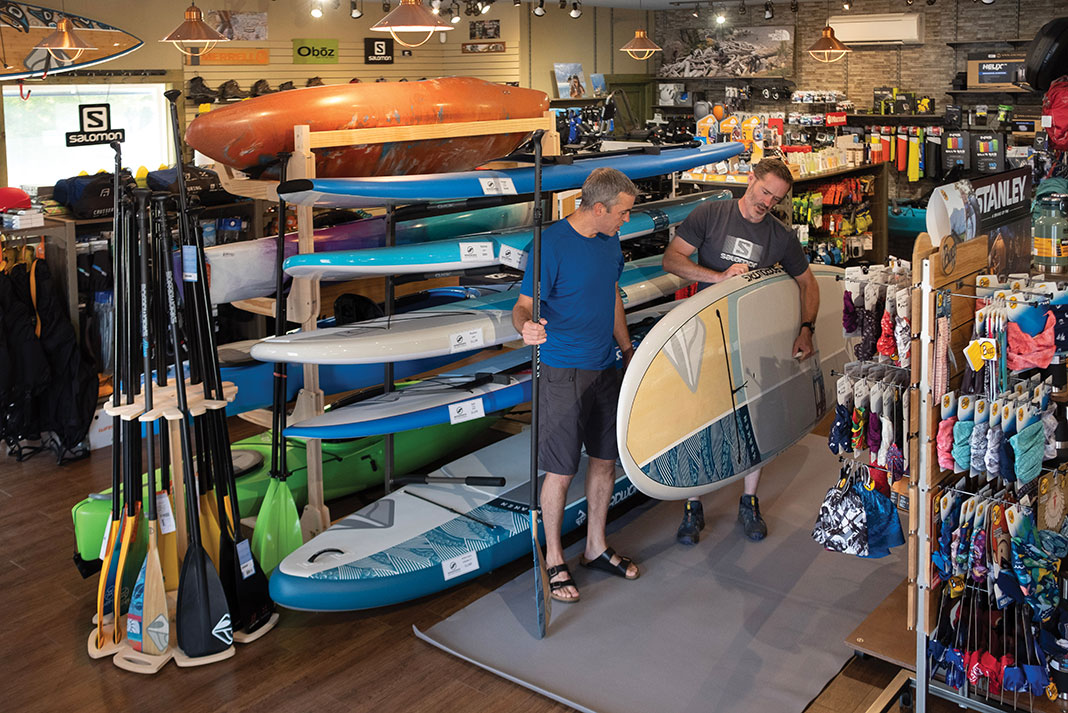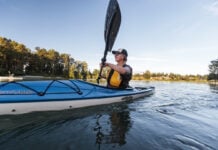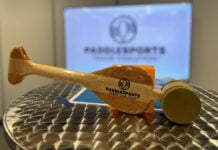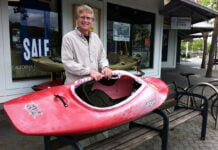During the height of the pandemic two years ago, Western Canoeing & Kayaking found itself in a conundrum familiar to specialty retailers all over the planet. Demand for boats and gear was off the charts, and supply channels were tapped out. It was nearly impossible for Western’s regular suppliers, including Confluence Outdoor, to fulfill their orders.
That’s when Confluence floated an intriguing proposition, says Western co-owner Ryan Bayes. Confluence had been the big fish of specialty paddlesports for more than two decades, hosting storied brands like Wilderness Systems and Dagger under its broad umbrella. But in 2019, recreational kayak giant Pelican International swallowed Confluence whole, making it the world’s biggest paddlesports manufacturer and a driving force in both specialty and big-box retail.
How to beat the box
Western’s Confluence sales rep told Bayes the company’s specialty brands couldn’t keep pace with Pandemic demand, but Pelican—a brand synonymous with mass retailers and one Western would never have carried under normal circumstances—could put a truckload of boats on the road to British Columbia the next day.
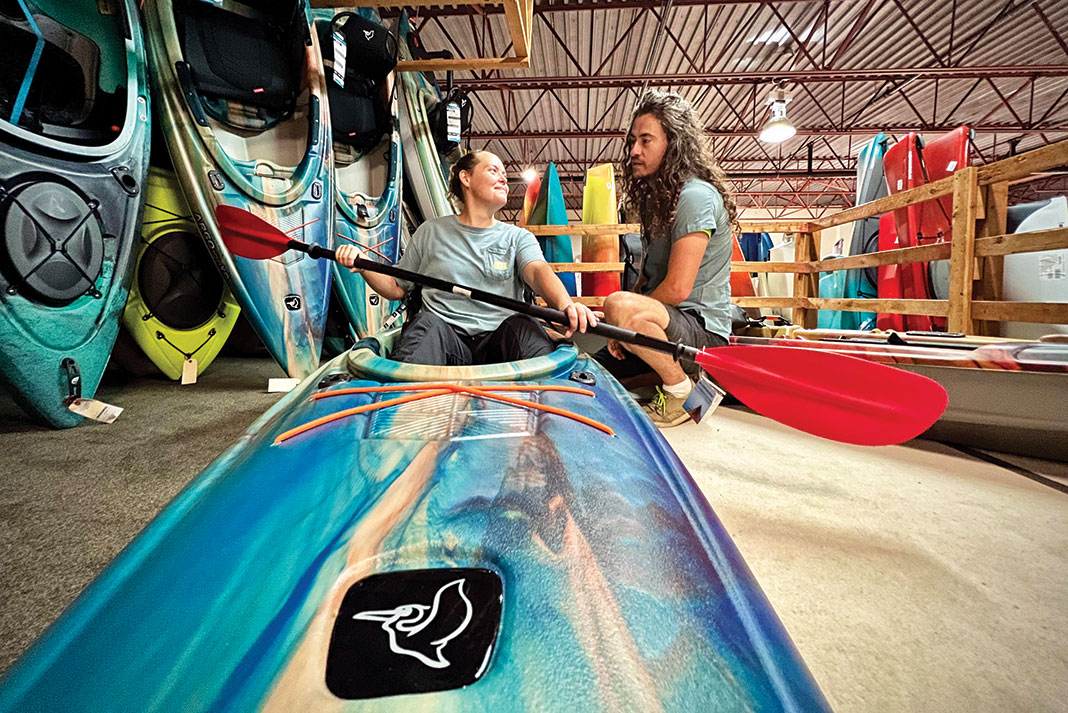
Bayes decided to go for it, a decision that helped float Western through the supply crunch when nearby stores, including the local Costco, had no boats to sell. The choice also cast new light on an evolving retail landscape—one in which specialty shops can beat kayak-slinging chain stores at their own game.
“We brought in most of Pelican’s premium line with nicer outfitting and better seats that are not distributed quite as broadly,” says Bayes, adding that the build quality of the Pelican models he chose to sell was much improved from those he’d seen in earlier years.
The local online paddling message boards at the time were full of comments about which stores had boats to sell. When Western received their shipment, one post was all it took to conjure a mad dash of buyers.
“We put a post up with pictures of us unloading a truck full of Pelican kayaks and a couple of hours later we had people here looking to buy them,” Bayes says. “Pelican probably has the strongest brand recognition. We know they aren’t top-of-the-line, but there are more Pelicans on the water than anything else.”
Two years on, Western is still carrying the brand, and by venturing into the Pelican catalog the store has revealed a successful strategy that many paddling shop owners may be loathe to acknowledge: Having these massively popular boats in your shop gets customers in the door.
Spending time with Western’s knowledgeable sales staff is a wildly different experience from grabbing a kayak while shopping for bulk cheese.
In the United States alone, the online search volume for Pelican Kayaks is in the realm of 15,000 inquiries per month according to online keyword research tools. Wilderness Systems, also owned by Pelican, pulls around 4,400 inquiries monthly. That’s more than 127,000 more queries for Pelican every year, and those online searches bring customers to brick-and-mortar stores.
Are all the customers who walk through Western’s doors going to leave with a Pelican? Of course not. But the difference between grabbing a kayak while out shopping for bulk cheese, or spending time with with Bayes and his knowledgeable sales staff are two wildly
different experiences.
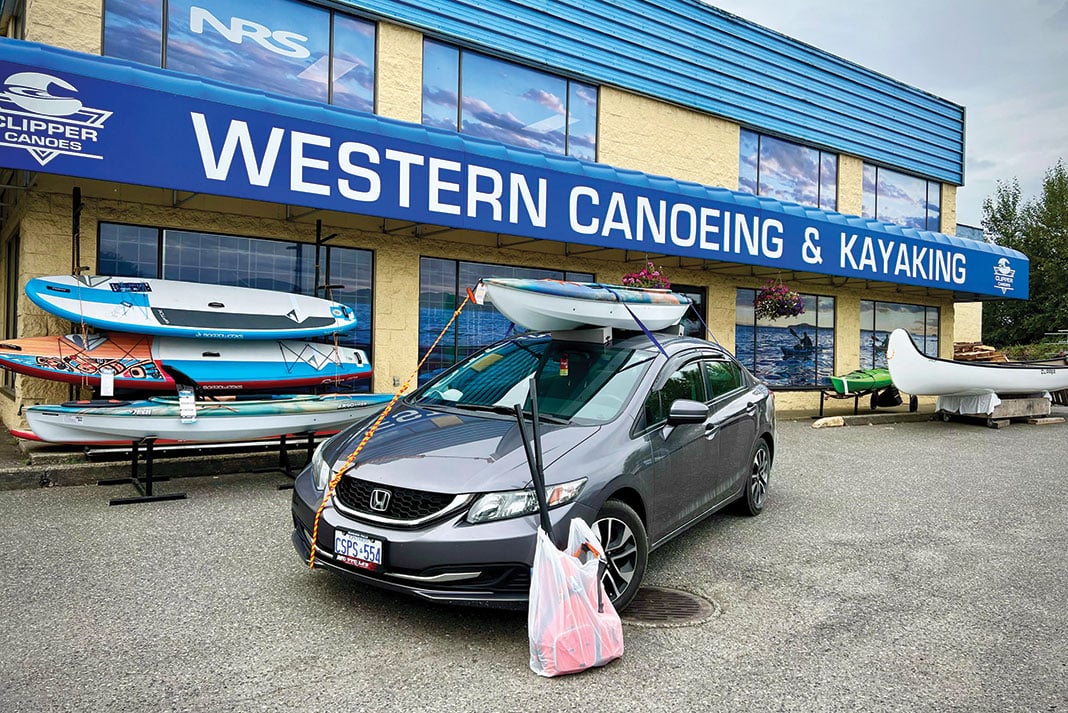
“Having Pelican in the store brings customers in that you get a chance to educate and steer in a direction that might suit them better. It’s a loss leader in a way,” Bayes says. “I had somebody come in and they were specifically looking for the cheapest Pelican Argo. After spending an hour with them looking at that boat and others they left with two Delta touring kayaks. That’s a $6,000 sale that came from having a price point that got someone through the door.”
Appealing to a broader market
Western isn’t the only specialty store selling Pelican. In Connecticut, Chris Burke at Indian River Marina and Kayak embraced the price-point brand after Pelican acquired Confluence.
“It’s a new endeavor for us, but it’s worked out well because we always have kayaks that range from $200 to $5,000,” Burke says. “We have to appeal to purchasers across the whole spectrum. Otherwise, you won’t have the sales volume you need to survive.”
Burke is now seeing return customers trade their price-point rec boats for mid-range models such as the Wilderness Systems Tsunami or Pungo. Some have even stepped up to composite Stellar touring kayaks. Both Burke and Bayes see any customer who comes to their shop in search of a Pelican represents an opportunity.
“We have the water right here,” Burke says, and that’s something the surrounding box stores simply can’t match. “Customers have the ability to demo any kayak we have in stock, and our level of knowledge across all of our product lines is far deeper than you’d ever get, at the likes of Dick’s or Costco,” he says.
One caveat both Burke and Bayes point to that would deter smaller shops from carrying low-price-point boats is the slim profit margin, especially once you factor in the shipping costs. Burke has the benefit of being within a day’s drive of Pelican’s Quebec factories, but even so, he says the shipping costs don’t pencil out for a mere 10 or 15 boats. Both he and Western are filling tractor trailers, receiving about 100 boats at a time from Pelican.
When it comes to volume and close margins, it’s tough to compete with the box stores Pelican is pumping full of low-priced product. At Indian River, though, Burke says they try to focus on what is within their control, not what isn’t.
“At the end of the day, everyone works for themselves,” he says. “Pelican’s doing what’s best for their business. We have to do what’s best for our business, and specialty retailers have to adapt. It’s up to us as small business owners to figure out how to differentiate
ourselves from other retailers and keep moving forward.”
Does keeping afloat as a paddle shop among mass retailers mean purchasing a truckload of cheap kayaks? Maybe. Maybe not. But in today’s market, landing a punch against retail giants may come down to fighting them at their own game.
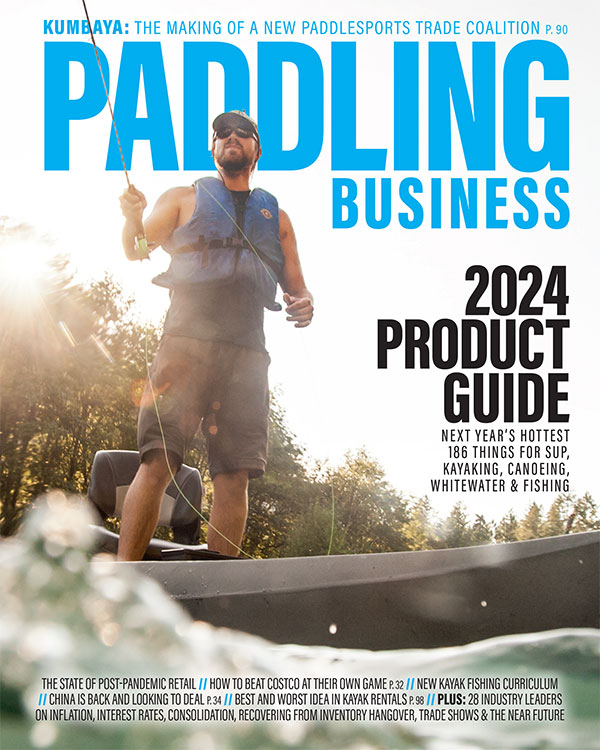
READ IT NOW »
Can’t box this: Western Canoeing & Kayaking has found success matching specialty service with price-point kayaks. | Feature photo: Western Canoeing & Kayaking




